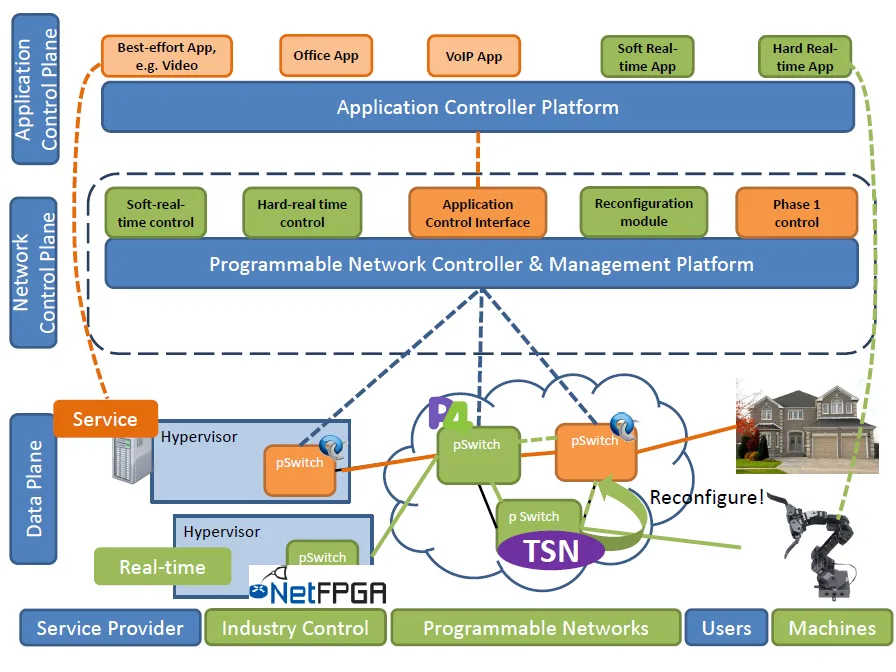Design and Evaluation of Flexible Programmable Hybrid Real-time Networks with Hard and Soft Real-time Guarantees
| Funding Agency: | DFG |
| Duration: | 3 years, 01.11.2021 - 31.10.2024 |
| Partners: | Lehrstuhl für Informatik III, Universität Würzburg |
| Researchers (TUM/LKN): | Philip Diederich (philip.diederich(at)tum.de) |
| Dr. Andreas Blenk (andreas.blenk(at)tum.de) | |
| Prof. Wolfgang Kellerer (wolfgang.kellerer(at)tum.de) | |
| Researchers (WUE/LS3): | Stefan Geißler |
| Prof. Tobias Hoßfeld |
Scope of Project
The use of software-defined networking (SDN) allows for integrating new mechanisms for the joint optimization of application control and network control. Phase 1 of the DFG SDN-APP project investigated and showed the feasibility of application-aware network management with an improved Quality of Experience (QoE) in multi-application scenarios.
Phase 2 of the DFG SDN App project extends Phase 1 and widens the considered scenarios. It integrates time-critical applications into the scope of the project. Phase 2 focuses on hybrid real-time networks with hard and soft real-time guarantees with changing demands like smart manufacturing to control manufacturing devices.
Phase 2 of the DFG SDN-APP project aims at realizing a hybrid real-time network allowing time-critical and best-effort applications to coexist on the same infrastructure. Phase 2 investigates the use of concepts such as Time-Sensitive Networking (TSN) and Network programmability (SDN and P4) for hybrid real-time networks.
The main objectives cover:
- Hybrid real-time networks: Mechanisms to provide hard and soft real-time requirements on a common physical infrastructure for (industrial) network types by utilizing SDN-enabled application-aware network control architectures
- Programmability:
- Analysis of programmable networking hardware with a focus on reconfiguration
- Identification of missing features
- Adaptation of the algorithms for a “hardware-aware” solution for providing end-to-end guarantees
- Flexibility: Quantification of the flexibility, as well as the performance/efficiency increase, depending on the available information
- Guidelines: Guidelines for the given network type

Funding
This work received funding by the Deutsche Forschungsgemeinschaft (DFG, German Research Foundation) - 316878574.